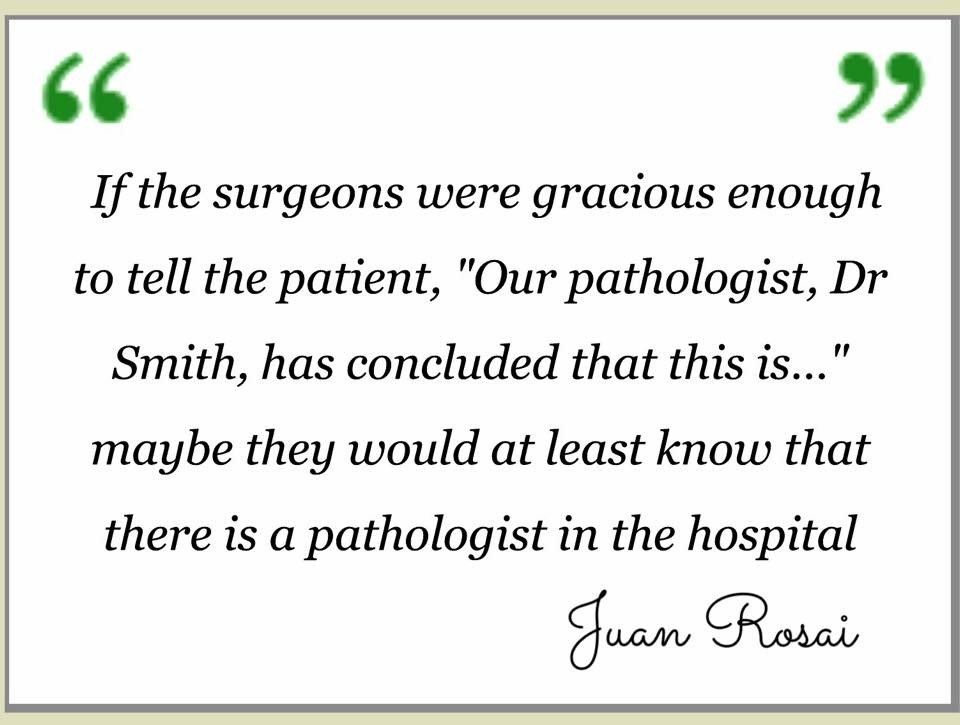When Did We Become “Health Care’s Secret Weapon”?
 I don’t really know when or where it started. You can track where it has been propagated. A quick Google search lead me to an article published in 2008 entitled “The Future Laboratory Professional: Health Care’s Secret Weapon”.
I don’t really know when or where it started. You can track where it has been propagated. A quick Google search lead me to an article published in 2008 entitled “The Future Laboratory Professional: Health Care’s Secret Weapon”.
Since then it seems to have become part of some additional syndicated articles, in some cases, referencing a well-done 30-second video highlighting a pathologist and what we do.
What confuses me is why are we fostering becoming/being a “secret weapon” in the health care? Can’t we just be one of many weapons, or perhaps tools or maybe even, dare I say the word, providers, I mean physicians, in health care?
The articles usually start out with something such as “The next time you or someone you care about needs hospitalization or just a medical test, your well-being could depend on a medical professional you may have never even see: your pathologist.”
Aside from bad syntax and grammar, who is propagating this message? Who is the intended audience? If it appears in the lay press for the patient public couldn’t we change this around a bit – at least get back to “Your Doctor’s Doctor – The Doctor You Never See But That Helps Your Doctor”. At least we get provider or professional out of the slogan and use the word doctor. Not that I really like being called “The Doctor’s Doctor” because while it perhaps was once true, I think increasingly, those doctors are telling us doctors what we should order.
How many folks have a sheet in their office that says “_______ Oncology Group requires EGFR, KRAS, ALK and ROS and …. on all new NSCLC cases”. Or, “_________ Gastroenterology Specialists get IHC for H. pylori on their stomach biopsies. Do not need to do up front for hospital cases.” Perhaps these came out of shared discussions. Sometimes we as the pathologists may recommend a “lung cancer mutation panel” or a “mismatch repair panel for colorectal cancer” to provide standard of care as I have in my institution but it seems more times than not we are being told what to do rather than being asked what are best clinical practices.
If the discussion at ASCO this past week is any indication of how oncologists think and I have tremendous respect for oncologists, this will continue without pathologists being involved in the dialogue. Increasingly, requests for small or large gene panels, isolated mutations, blood or urine samples to detect mutations, particularly when collecting tissue is an issue are going to inundate laboratories and pathologists, to either perform or refer. And then, aggregating genomics data with clinical data to provide useful information to the clinician and the patient.
Of course, a number of companies are doing this, some diagnostics, some data analytics, some both and the oncologists are requesting “please send the block to “X” or “Y” and tell me what they say”.
If we didn’t make the paraffin block they could avoid us altogether.
We need to step out from behind the paraffin curtain, out from behind the microscope and out from under being a “secret” weapon.
































